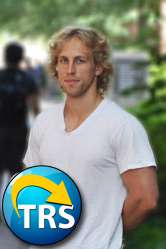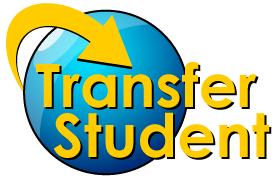Major: Mathematics
Minor: Physics
“Research into Nanoparticles”


What research have you been doing this summer?
I was involved in three separate projects this summer. They ranged from the synthesis of silicon nanoparticles for their use in drug-delivery systems to the construction of untested battery materials for more efficient charging and discharging rates. The applications of the research into nanoparticles are extremely diverse and varied.
How did you find out about this opportunity? Was there a formal application process?
I found out about this program (Mid-Atlantic Nanotechnology Research Hub) from my Physics professor (Dr. Baum) at CCBC. I also received an e-mail from the acting engineering department chair of CCBC (Laura LeMire) informing me of the opportunity. I had to send in my transcript and a letter of recommendation from one of my teachers. After this, I was selected for an interview based on my strong academics and my letter of recommendation. My interview went well and I was chosen to participate in the program.
Who did you work with on this project?
I worked under Professor Brian Cullum and his three graduate students: Eric, Pietro, and Sudhir. I worked under Professor Mark Allen and his three graduate students: Alex, Evgenia, and Scott. I worked under Professor Zeev Rosenzweig and his one graduate student: Ricky.
Was this your first research experience?
Yes, this was my first independent research project.
Do you get course credit for this work or get paid? How much time do you put into it?
I was paid for my work but did not receive credit hours. The program lasted for two months and I was scheduled for a 9-5 shift, five days a week.
What academic background did you have before you started?
I recently graduated from CCBC with an Associate’s degree in Mathematics. While I did not use my math knowledge this summer, I did need to use basic problem solving skills.
How did you learn what you needed to know to be successful in this summer project?
I paid attention to the information that was given to me by my instructors and I read the articles that they gave me to research on my own time. Also, for the first week of the internship, the entire body of students that were selected to participate from CCBC spent time in classes that were designed to prepare us for lab protocols and that gave us a basic background in what nanotechnology is and its uses.
What has been the hardest part about your work this summer?
The hardest part about working in the internship was my lack of previous lab work and my virtually nonexistent knowledge of chemical and biological processes. The work I did was very far removed from the work I am used to. I became acclimated to a completely different style of problem solving and intelligence.
What was the most unexpected thing?
I was pleasantly surprised at how understanding and professional everyone was. Not a single person was unhelpful during my tenure in the different labs.
How does this research experience relate to your course work?
This internship gave me a basis for understanding how to mathematically model certain problems in the physical sciences. As a mathematician, the interpretation of data was an important skill to have for this summer.
What is your advice to other students about getting involved in research?
Do not expect to become an expert overnight. Becoming a valued member of a research project can be a slow and tedious process. Also, one should not be dismayed at the fact that he or she is not proficient in every STEM field. A research project usually requires people from many different disciplines. Play to your strengths and take your time in developing the skills that you do not have. (The most valuable person in a group is one who can effortlessly translate from one separate set of skills to another)
What are your career goals?
I plan on joining the military after getting my math degree from UMBC. I also want to pursue a doctorate in math.
What else are you involved in on campus?
I have not been a student at UMBC long enough to join any programs or clubs but I plan on attempting to join a mathematics research program as an undergraduate and also the Chess Club.
10/2/2014